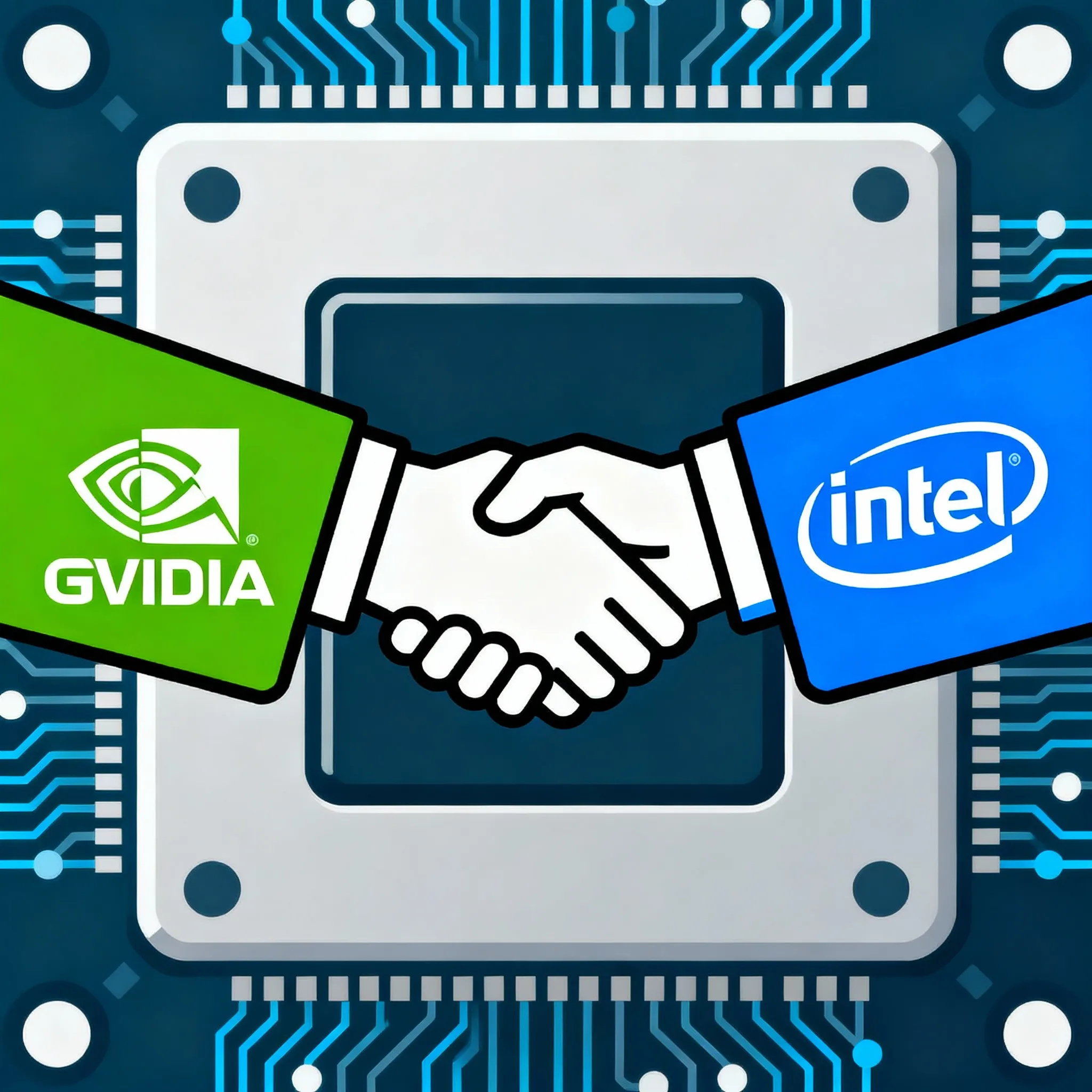Nvidia’s $5 Billion Intel Bet and Samsung’s HBM3E Win Signal Shifts in Chip Market

Lead AI leader Nvidia invested $5 billion in rival Intel and secured Intel’s cooperation on customchips on Friday, while Samsung Electronics cleared Nvidia’s quality tests for its 12-layer HBM3E memory chips, reshaping industry ties and supply chains.
Nut Graf The dual announcements mark a strategic pivot in the semiconductor sector. Nvidia’s cash infusion into Intel aims to bolster AI infrastructure collaboration, and Samsung’s certification as an HBM3E supplier adds a third major vendor to Nvidia’s high-bandwidth memory lineup-both actions enhancing resilience amid geopolitical and production pressures.
Nvidia’s Strategic Investment in Intel
Nvidia agreed to purchase $5 billion of Intel common stock at $23.28 per share, acquiring roughly a 4% stake and forging a partnership on AI data centers and PC chips. Jensen Huang, Nvidia’s CEO, emphasized that the alliance “tightly couples” Nvidia’s AI stack with Intel’s CPU expertise, laying groundwork for next-generation computing platforms. Intel shares surged 23% following the announcement, underscoring investor confidence in Intel’s revived trajectory amid heavy losses and workforce reductions earlier this year.
Collaboration Scope
- Custom AI data-center chips: Intel will fabricate bespoke processors for Nvidia’s hyperscale AI systems.
- Integrated PC solutions: Future Intel CPUs will embed Nvidia’s GPU technology to improve performance and efficiency.
Samsung Joins Nvidia’s HBM3E Supplier Roster
Samsung Electronics passed Nvidia’s rigorous quality tests for its 12-layer HBM3E memory chips on Friday, becoming the final major vendor alongside SK hynix and Micron able to supply Nvidia’s AI accelerators. Samsung began delivering HBM3E samples in early 2024 but only secured approval after 19 months of validation. Initial volumes this year will be limited, as SK hynix and Micron have already filled their allocations.
Implications for Memory Supply
- Increased competition: Samsung’s entry may ease capacity constraints and reduce risks of supply bottlenecks.
- Next-gen focus: All three suppliers are already competing to supply HBM4 chips for AI accelerators slated for 2026 release.
Market and Geopolitical Context
These developments come amid U.S. efforts to onshore chip production under the CHIPS Act and concurrent tensions over export controls. Nvidia’s Intel partnership aligns with national security incentives to strengthen domestic manufacturing, while diversifying memory vendors mitigates risks from potential export restrictions on Chinese suppliers.
This article adheres to the inverted-pyramid style, presenting key developments first and adding context and quotes in descending importance.
Categories
Autos and vehicles Beauty and fashion Business and finance Climate Entertainment Food and drink Games Health Hobbies and leisure Jobs and education Law and government Other Politics Science Shopping Sports Technology Travel and transportationRecent Posts
Tags
Archives
08/19/2025 (3) 08/20/2025 (40) 08/21/2025 (27) 08/22/2025 (22) 08/23/2025 (4) 08/24/2025 (21) 08/25/2025 (30) 08/26/2025 (24) 08/27/2025 (29) 08/28/2025 (16) 08/29/2025 (9) 08/30/2025 (13) 08/31/2025 (17) 09/01/2025 (167) 09/02/2025 (124) 09/03/2025 (149) 09/04/2025 (112) 09/05/2025 (72) 09/06/2025 (169) 09/07/2025 (162) 09/08/2025 (150) 09/09/2025 (176) 09/10/2025 (194) 09/11/2025 (194) 09/12/2025 (186) 09/13/2025 (207) 09/14/2025 (159) 09/15/2025 (175) 09/16/2025 (198) 09/17/2025 (196) 09/18/2025 (196) 09/19/2025 (207) 09/20/2025 (129) 09/21/2025 (4)